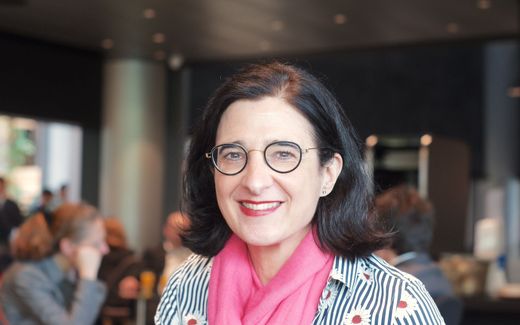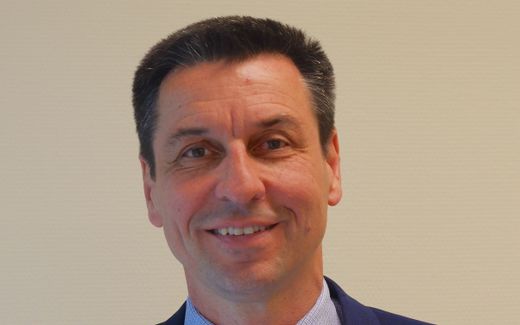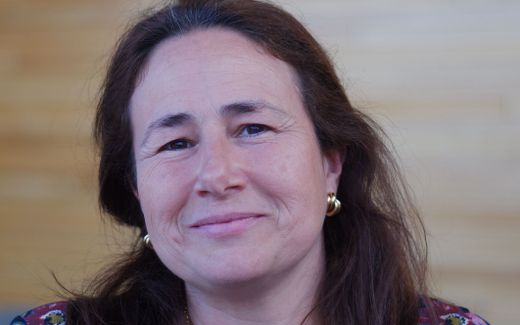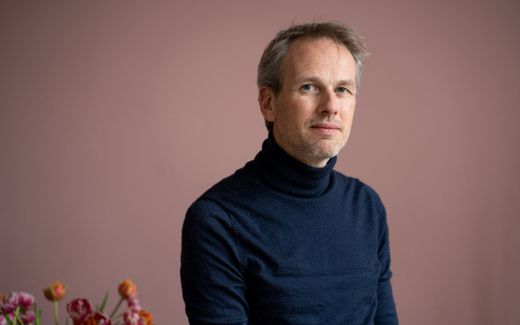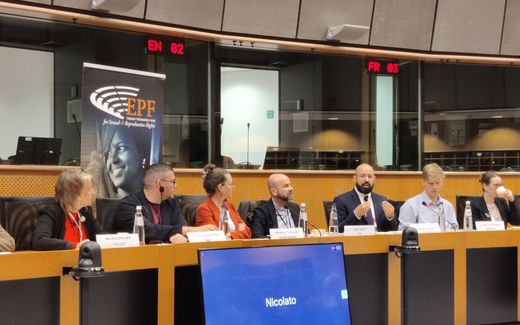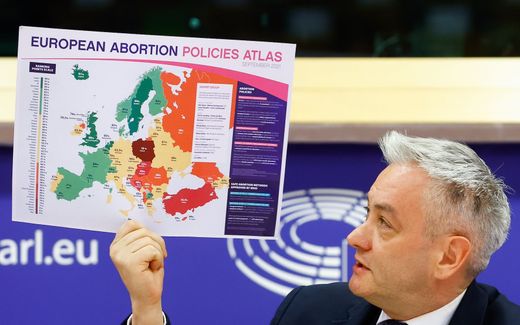Joachim Kuhs, Calvinist pastor in the European Parliament
30-05-2024
European Union
Cornelis Boon, RD
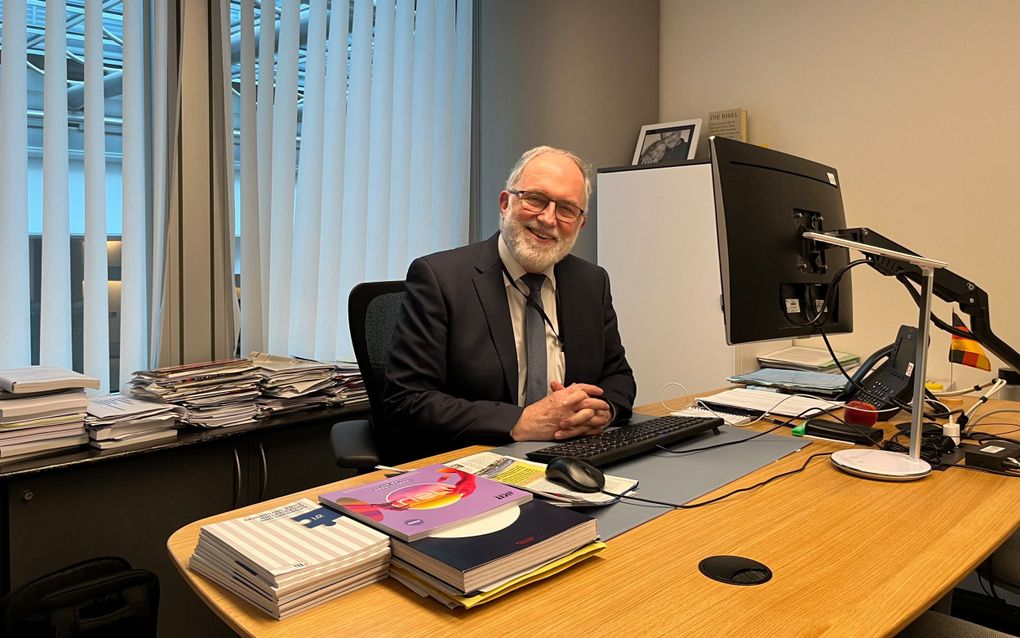
Joachim Kuhs in his office in the European Parliament. Photo RD
European Union
For the German pastor Joachim Kuhs (67), his pastorate and work as an MEP for the radical-right Alternative für Deutschland (AfD) party go well together. "There is no more Christian party program in Germany than ours."
On Thursday afternoon, after the votes, the European Parliament in Strasbourg is quiet. Most MEPs pull the door of their offices shut behind them and go home. Kuhs does not, because he is home within fifty minutes. In the plenary chamber of the European Parliament, he regularly draws attention to issues close to his heart: rights of the unborn, persecuted Christians and the disabled.
Kuhs is pastor of an independent congregation in Baden-Baden in the German state of Baden-Württemberg. He describes his congregation as Calvinistic in doctrine.
After Kuhs hears "intolerant and blasphemous expressions" against the pro-life movement during the March for Life in Berlin twelve years back, he sees it as his calling to become politically active. On March 18, 2013, he registers as a member of the radical-right AfD party in Germany.
In 2019, Kuhs has been elected to the European Parliament for the party. However, after five years in European politics, he does not feel like a politician by any means. "I am mostly a family man”, he says as a father of ten children.
Family as the cornerstone of society
Within his party, Kuhs sits on the board of Christen in der AfD, a group of several hundred majority Protestant AfD members who advocate Christian values within the party. How can a Christian be a member of the radical-right party? For Kuhs, that is not a question. "No other Christian party program in Germany is more Christian than ours. One example: we emphasise the importance of the family as the cornerstone of society."
Although the party also takes a strict anti-immigration stance, Kuhs does not see it as uncharitable. "We want to accommodate everyone in need. But shelter does not have to be in Germany; it can be elsewhere in the world."
That a party event early this year in Potsdam mentioned mass deportation of failed asylum seekers, Kuhs characterises as a lie. "It was not a kind of Wannsee Conference 2.0. What was discussed in Potsdam was remigration: the departure of refugees whose asylum applications have been rejected in Germany."
Putinist
In March, Kuhs was interviewed by Voice of Europe just before the same portal was busted by Czech authorities. The network allegedly paid MEPs to spread Russian propaganda in the European Union. Kuhs does not see himself as a Putinist. "I'm glad I don't live in Russia," he said.
He does have problems with the fact that the discussion about the war in Ukraine is "driven by values and not conducted pragmatically". As far as he is concerned, Kyiv and Moscow are going back to the negotiating table as soon as possible "to talk about peace so that this senseless battle can stop".
Joachim Kuhs will resign as an MEP after the next elections on June 6, 2024. Instead he will try to get elected to the city council of the German town Baden-Baden, and focus more on his pastoral work in his church in the same place.
This article was translated by CNE.news and published by the Dutch daily Reformatorisch Dagblad on May 15, 2024
Related Articles

